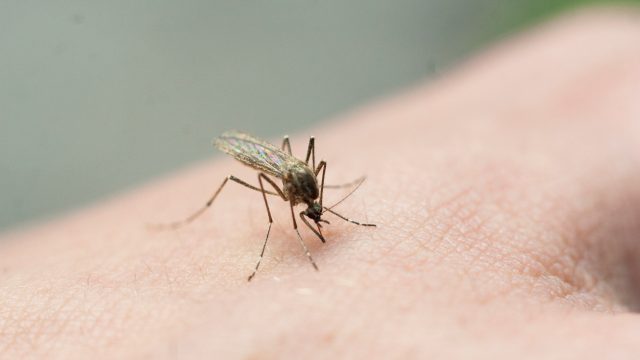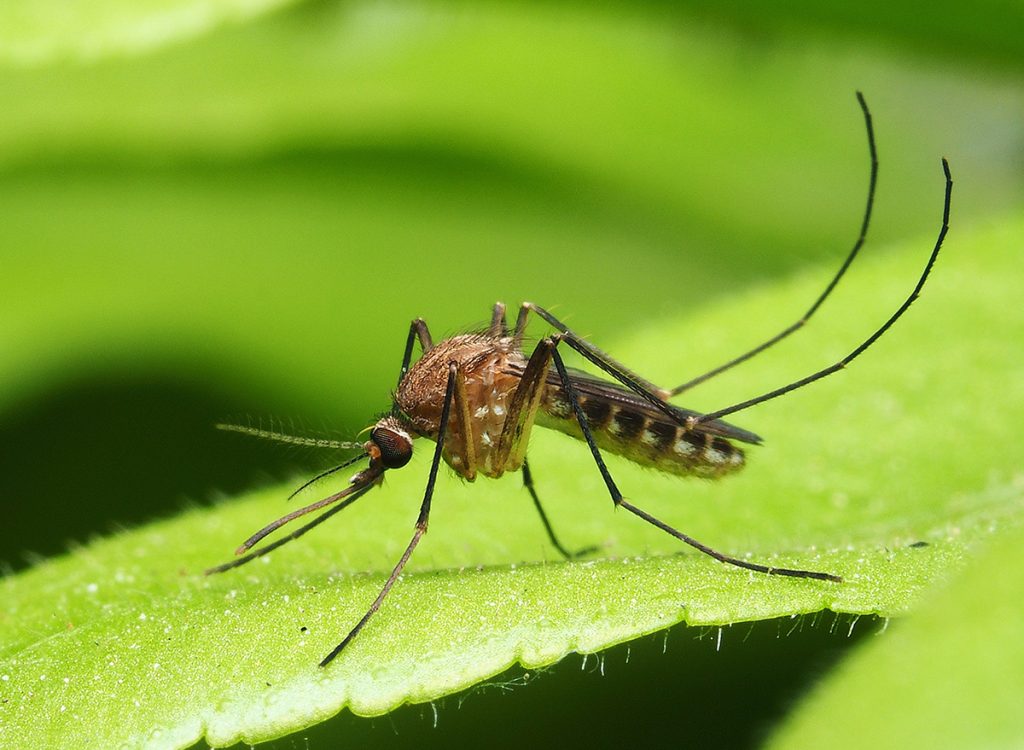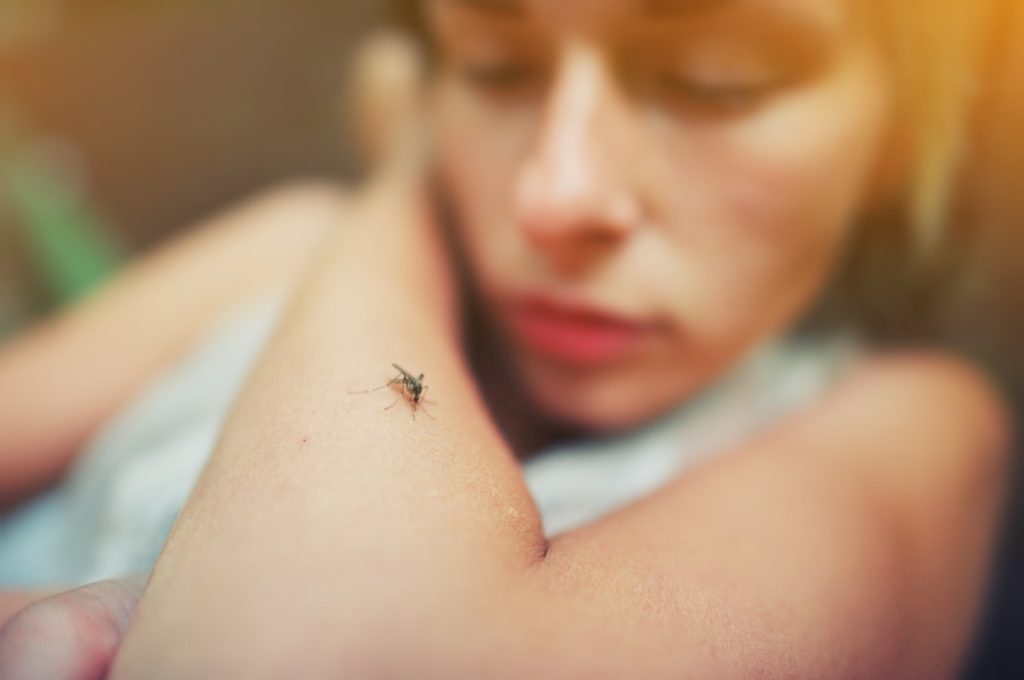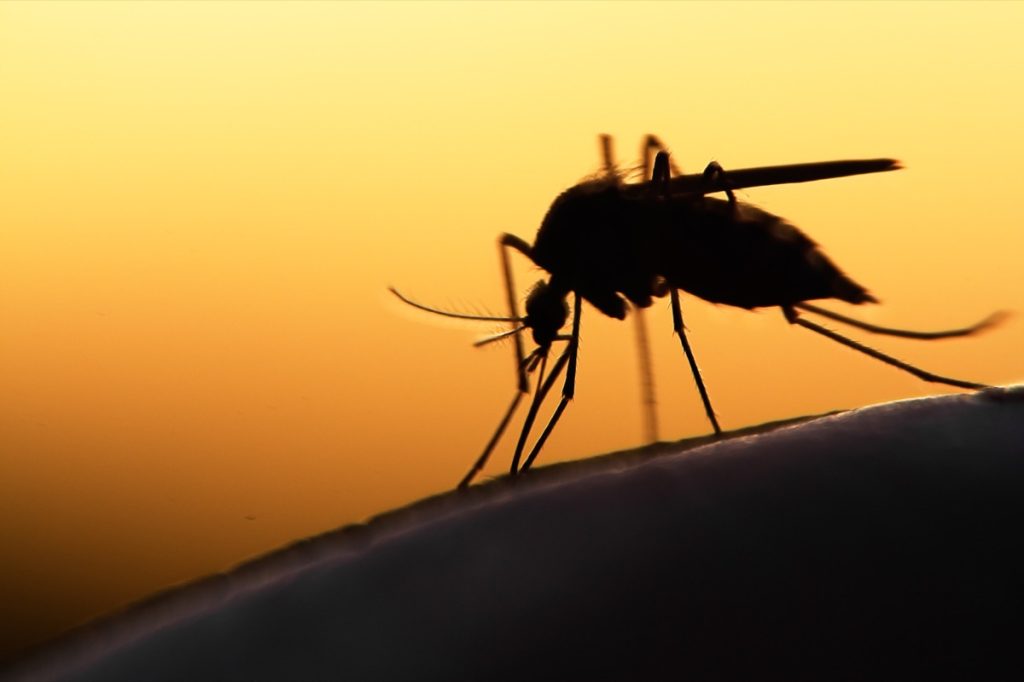“Concerning” New Mosquito Species Discovered in the U.S.—Here’s How to Protect Yourself

Now that the weather is warming back up, it’s finally time to dust off the patio furniture and get the hiking gear out of storage again. But even if you’ve been anxiously awaiting some outdoor time, the return of summer also brings back some pesky parts of nature—especially mosquitoes. In most cases, the annoying insects seem to be able to sneak in and leave itchy bites, no matter how hard we try to avoid them. However, a “concerning” new mosquito species that’s been discovered in the U.S. could pose more serious problems. Read on to see how you can protect yourself from the invasive pest.
READ THIS NEXT: Invasive 200-Pound Pythons Are Spreading in the U.S.—And Eradication “Is Not Possible.”
A new mosquito species was just discovered in Florida.

Everyone knows that biting insects are no fun to be around. But in a study published in the Journal of Medical Entomology on March 22, researchers from the University of Florida’s Institute of Food and Agricultural Sciences (UFIFAS) say there’s a new species of mosquito in the U.S. that could pose a more serious problem than just an itchy bite.
The team first noticed the species—which is native to Central and Northern South America and has the scientific name Culex lactator—in Florida’s Miami-Dade County just five years ago. Subsequent DNA testing determined that this mosquito was beginning to spread across the state.
Researchers say it’s already been found in Collier County (south and east of Naples) and Lee County (west of Fort Myers), according to a press release from UFIFAS.
“Culex lactator is physically similar to mosquito species already known from Florida. It looks like other more common mosquito species,” Lawrence Reeves, lead author of the study and an assistant professor and mosquito biologist at the UFIFAS research center, said in the release. “Because of that similarity, the presence of Culex lactator in an area can be easy to miss.”
Researchers are concerned the insects could spread dangerous diseases.

Besides their typically pesky nature, the newly discovered mosquito could pose other serious problems to the general public. Researchers say they’re similar to some other invasive varieties that made their way to the U.S. from tropical habitats, and those mosquitoes can spread potentially deadly viruses, including West Nile and St. Louis Encephalitis, NPR reports.
Despite extensive research on mosquitoes, Reeves said there’s still plenty researchers don’t know about the flying insects, which can make it challenging to forecast what their impact will be.
“That’s particularly true for species from the tropical forests, where mosquitoes are diverse and understudied,” he said in the press release. “Introductions of new mosquito species like this are concerning because many of our greatest mosquito-related challenges are the result of non-native mosquitoes, and in a case like this, it’s difficult to anticipate what to expect when we know so little about a mosquito species.”
Climate change could worsen the problem.

While Culex lactator may be the latest unwelcome addition to Florida’s ecosystem, it’s far from the first. The researchers point out that there are 17 non-native species of mosquito in the state, 11 of which were only discovered in the past 20 years and six of which were only first recorded in the last five years, according to the UFIFA press release. Now, the team worries that rising temperatures could make such invasive insects a more common experience.
“Climate change may improve the chances of tropical mosquito species becoming established once they make it to Florida if the state becomes warmer,” Reeves added. “Increasing storm frequency and intensity could also blow in more mosquitoes and other species from the Caribbean, Central America, and elsewhere.
RELATED: For more up-to-date information, sign up for our daily newsletter.
Researchers are pushing for further studies on the new mosquito species and increased awareness.

Since each mosquito species is different, Reeves said it’s not yet known if Culex lactator can carry dangerous pathogens, including the dengue and Chikungunya viruses. He says that further research is needed to better understand the threat the flying insects could pose—as well as staying on top of any other new arrivals.
“We need to be vigilant for introductions of new mosquito species because each introduction comes with the possibility that the introduced species will facilitate the transmission of a mosquito-transmitted disease,” he said in the statement.
There are ways to protect yourself from potentially dangerous mosquitoes.

Even as potentially dangerous new species of mosquito are beginning to spread, there are still plenty of ways you can protect yourself from the biting insects. According to the Centers for Disease Control and Prevention (CDC), you can use an insect repellant that’s been approved by the Environmental Protection Agency (EPA) that includes DEET, picaridin, IR3535, oil of lemon eucalyptus (OLE), para-menthane-diol (PMD), or 2-undecanone as active ingredients.
If you’re heading outdoors, the agency also suggests dressing in loose-fitting pants and long-sleeved shirts to prevent bites. Some clothing and gear can also be treated with 0.5 percent permethrin or even sold pre-treated to repel or kill mosquitoes.
At home, you should replace any screens with holes in them to avoid granting mosquitoes easy access inside and use air conditioning instead of an open window whenever possible. The agency also suggests regularly checking for and emptying items around your property that can collect water where mosquitoes lay their eggs—including birdbaths, tires, planters, trash receptacles, toys, pools, and buckets.